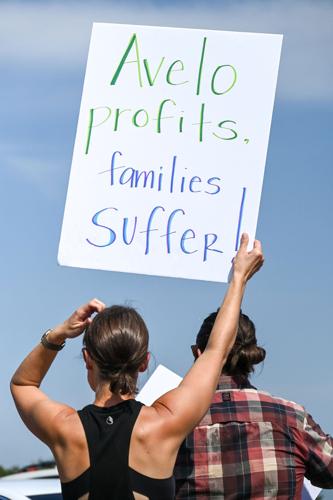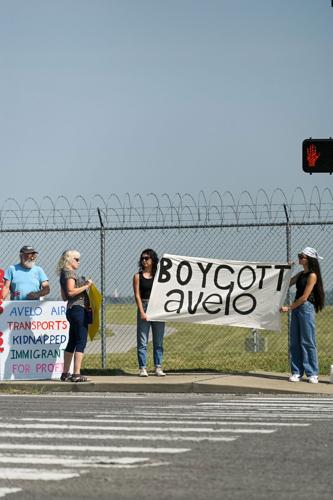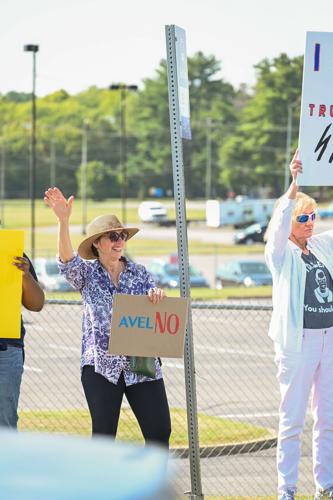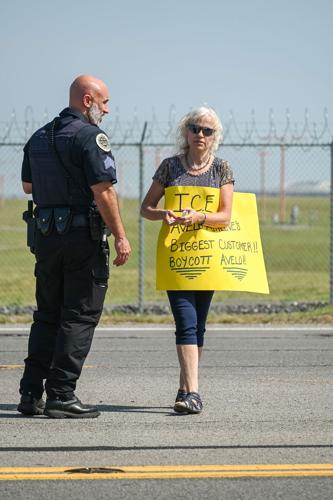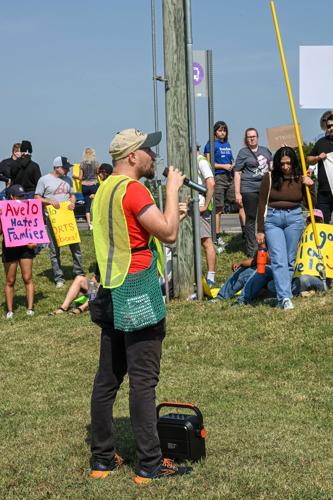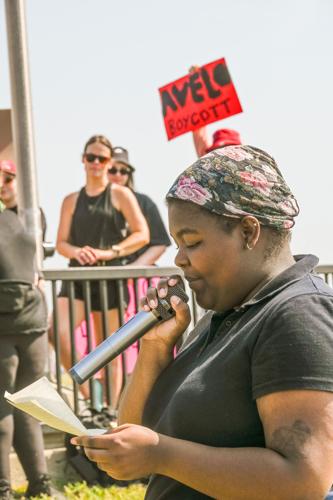On Saturday morning, roughly 40 protesters gathered outside the Nashville International Airport cellphone lot calling for a boycott of a budget airline that contracts with U.S. Immigration and Customs Enforcement. The demonstration was part of a nationwide rebuke of Houston-based Avelo Airlines, which announced in April it would assist in flying deported immigrants out of the country.
The protesters lined up alongside Murfreesboro Pike waving signs, receiving supportive honks from passing vehicles while chanting for Nashville to “de-ICE” its planes.
Avelo doesn't operate any deportation flights out of Nashville; those instead take off from Arizona. Responding to Avelo protesters on social media, BNA says the airport “does not have the authority to restrict or deny air service” due to federal grant obligations. The budget airline’s CEO called the contract with ICE a way to expand service and keep its crews employed. Avelo advertises cheap flights starting at $29, competing with other low-budget airlines like Spirit.
The city is reeling from ICE’s May operation, but with another surge expected, education and advocacy campaigns soldier on
“People are kind of shocked at how affordable those flights are,” Mike Lacy, one of the Nashville boycott organizers, told the Scene Saturday. “Well, someone is underwriting that. And on one hand, it's the Immigration and Customs Enforcement [that] is underwriting it, but it is also the families of immigrants — many of whom have credible claims to asylum but are not having their cases held — that are underwriting your cheap flight.”
The boycott saw success in New Haven, Conn., where the city prohibited “the use of public funds for any travel on Avelo Airlines.” Lacy thinks similar restrictions on Metro funds are possible in Nashville.
A series of speakers closed out Saturday’s protest. Daisy Ruiz Pérez of Workers’ Dignity highlighted the labor advocacy organization's recent campaign to educate business owners and managers on how to defend their rights and protect their employees from immigration agents. “We've been going out canvassing to businesses … hoping to teach them their Fourth Amendment rights, and letting them know that they don't have to let ICE agents in,” she said.
Luis Pedraza of grassroots advocacy group The ReMix Tennessee called for people to get involved in advocating for their community, whether by assisting in mutual aid for families torn apart by ICE, by campaigning for political candidates aligned with their values, or through protests and direct action.
“You do not have to wait to have all the answers … to get involved,” he said. Pedraza also shared that he was affected by the “deportation machine” when his brother was removed from the country in 2017. “I have to deal with that every day. But I know that I'm gonna keep fighting, even though it's scary.”


